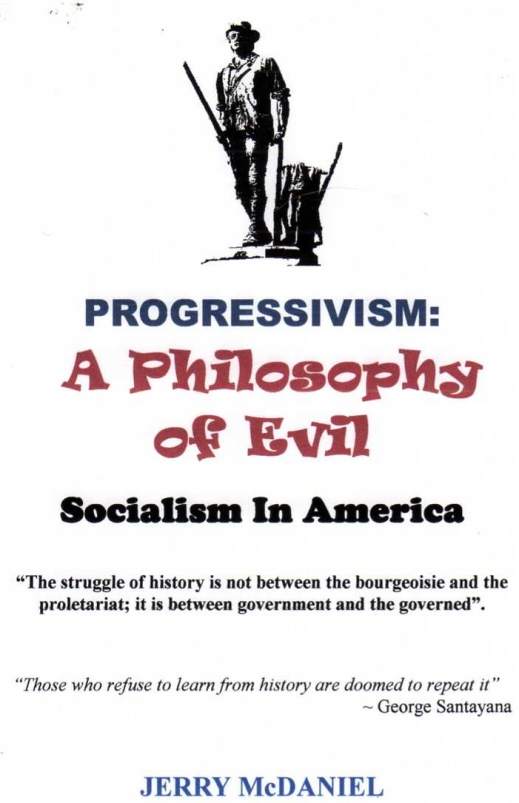The current national discussion of Obamacare gives us an easy to understand object lesson as to just how the progressives (American Socialists) have taken over our government in a hundred year bloodless revolution. According to an AP/GfK poll released Friday, only 37 percent of Americans want the “Affordable Care Act” that Obama signed into law last March repealed outright. This is an astonishing number because it means that 67 percent of Americans have bought into the premise that the federal government has the authority and should regulate, to some extent, America’s health care.
Vladimir Lenin considered universal health care to be the lynchpin of communism, not because he was concerned about the health of the people — he was responsible for the death of millions — but, because it provided the surest means of guaranteeing citizens’ dependence on the state. Food and medicine are two main essentials of life. When the government is able to control access to these essentials, citizens become dependent on, and thus slaves to the state.
Obamacare, when fully implemented, will make all citizens dependent on the state for their health care; meanwhile, eligibility for food stamps has been quitely expanded to the point where 42 million Americans are now receiving food assistance through the federal government. (States are only responsible for half the cost of administering food stamp programs. The food stamps themselves are funded entirely by the federal government).
Millions more Americans are partially or wholly dependent on the government for their livelihood, through direct grants, tax incentives or employment by companies that depend on government contracts for major parts of their revenue. Government largess is like a potent drug in the economic system of any nation, destroying individual initiative and liberty.
Once the population becomes addicted, it is difficult, if not impossible, to cleanse it from the system. We only have to look to the news from Europe today to see the turmoil caused by withdrawal from an addiction to socialism. To understand the dynamics of socialist addiction, consider the difficulty of reforming the popular social programs of Social Security, Medicare, Medicare and Welfare in our own country. Imagine what is likely to happen when it eventually becomes necessary to dismantle them completely.
It is the addictive characteristic of socialism that accounts for its steady progress in America since the late eighteen hundreds. Government controlled health care is the last step in the long journey to socialism started during the final years of the nineteenth century, and becoming firmly entrenched during the twentieth century. It has been the dream of American progressives since the inception of the progressive movement.
The idea of universal health care began in Germany in 1883 with a compulsory “sickness insurance” for workers. It soon spread to Austria, Hungary, Norway, England, Russia, Sweden, Denmark, France, Switzerland and the Netherlands. By 1912 virtually all of Europe had some form of “state mandated” health care. This drain on European economies was one of the factors that allowed America to become the economic superpower of the world during the twentieth century.
The seeds of universal health care were planted in America during the administration of Theodore Roosevelt (1801-1809), through a proposal by the American Association of Labor Legislation (AALL). In 1917 AALL, backed by the AMA proposed a plan for compulsory health insurance; the advent of World War I caused it to be put on hold, however. The effort was revived in the mid-twenties by the Committee on the Cost of Medical Care.
Franklin Roosevelt toyed with the idea of including health insurance in the Social Security Bill of 1935, but it was not included for fear it would destroy the chances of the Social Security Bill being passed. The Roosevelt administration again attempted health care legislation with the National Health Act (Wagner Bill) of 1939. It was defeated by a conservative legislature elected in 1938 and World War II prevented its further progress.
Another attempt at national compulsory health insurance was attempted in 1943 with the Wagner-Murray-Dingell Bills. In 1945, Roosevelt’s successor, Harry Truman again proposed a plan for national health care. It died in committee. In 1958 Congressman Aime Forand (D-RI) introduced a bill to cover hospital costs for senior citizens on Social Security. His bill did not make it through Congress but the proposal became a part of the Great Society legislation signed into law by Lyndon Johnson in 1965 as Medicare, parts A and B and Medicaid. We are all familiar with the ill-fated efforts of Bill and Hillary Clinton for universal health care after they took office in 1993.
Barack Obama has accomplished in a little over a year what no other progressive President has been able to accomplish in over a century of trying. We can expect that progressives will go to any length to salvage as much of the health care bill as possible. However, it must not be allowed to stand. It must be repealed in its entirety, not modified, reformed or altered to rid it of some of its more egregious parts. Like a cancer, it must be exorcised completely, otherwise it will Metastasize and eventually kill the patient.
The greatest danger to our individual liberty and our economic survival is the danger of a compromise on Obamacare, as the AP/GfK poll shows. Already we are hearing talk of amending the bill rather than repealing it, and that comes from the Republican side of the aisle. Twenty states have filed suit in federal court challenging the constitutionality of the mandatory insurance section of the bill. The theory is that if the courts determine that part of the bill to be unconstitutional the whole plan will unravel. However, that theory does not stand up in the light of history. In fact, that part of the bill could be nothing more than a “Trojan Horse” meant to establish the constitutionality of government regulation of health care.
If only compulsory insurance is found to be unconstitutional, then by inference, the balance of the bill will be considered constitutional by default, thereby inhibiting any further court challenges. The government will attempt to argue in court that the “commerce clause” empowers government to regulate health care and, by extension, compulsory health insurance mandated by the government. This is an extreme corruption of the commerce clause based on a 1942 Supreme Court ruling in Wickard v. Filburn that “any activity that exerts a substantial economic effect on interstate commerce” may be regulated by Congress. Because of the precedent established by this case there can be little confidence in how the courts will rule, and for that reason the bill must be repealed completely.
It should be obvious to any thinking person, literate in the English language, that the delivery of health care does not and cannot constitute interstate commerce. Health care delivery requires the face to face interaction between the provider and the patient. A physician in Chicago cannot diagnose and treat a person in Milwaukee, for example. Insurance does not fall under interstate commerce because it is not a product but a contract. The sanctity of a contract is emphasized in Article I, Section 10 of the Constitution by forbidding states from passing any law “impairing the obligation of contracts”.
Obama will certainly veto any attempts by Congress to repeal the health care bill, and repeal may not be possible before 2013 when the next Congress is seated without Obama in the White House. However, the amount of effort put forth by the Republican Congress over the next two years for repeal is the best possible indicator of who should be reelected in 2012. Any Republican Congressman or Senator who fails to support and vote for repeal in the next Congress should not be sent back to Washington in 2013.
Click here for a thorough explanation of the “commerce clause”.






